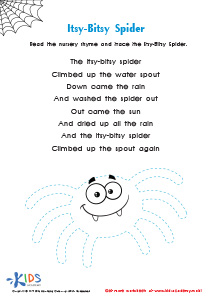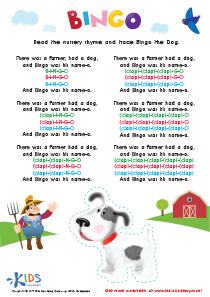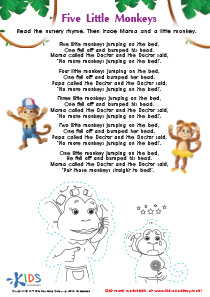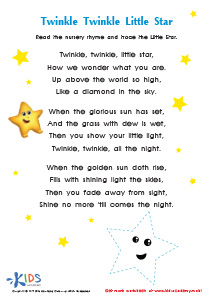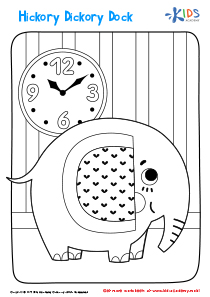Easy Nursery Rhymes Worksheets for Ages 6-9
5 filtered results
-
From - To
Discover our Easy Nursery Rhymes Worksheets designed specifically for children ages 6 to 9! These engaging worksheets encourage creativity and strengthen literacy skills through beloved nursery rhymes. Each activity combines fun with education, allowing children to practice reading, writing, and comprehension in an enjoyable format. With vibrant illustrations and simple instructions, our worksheets are perfect for both classroom use and at-home learning. Help your child explore rhythm, rhyme, and storytelling while enhancing their vocabulary and early literacy skills. Get ready to make learning delightful with our collection of nursery rhyme worksheets adapted for young learners!
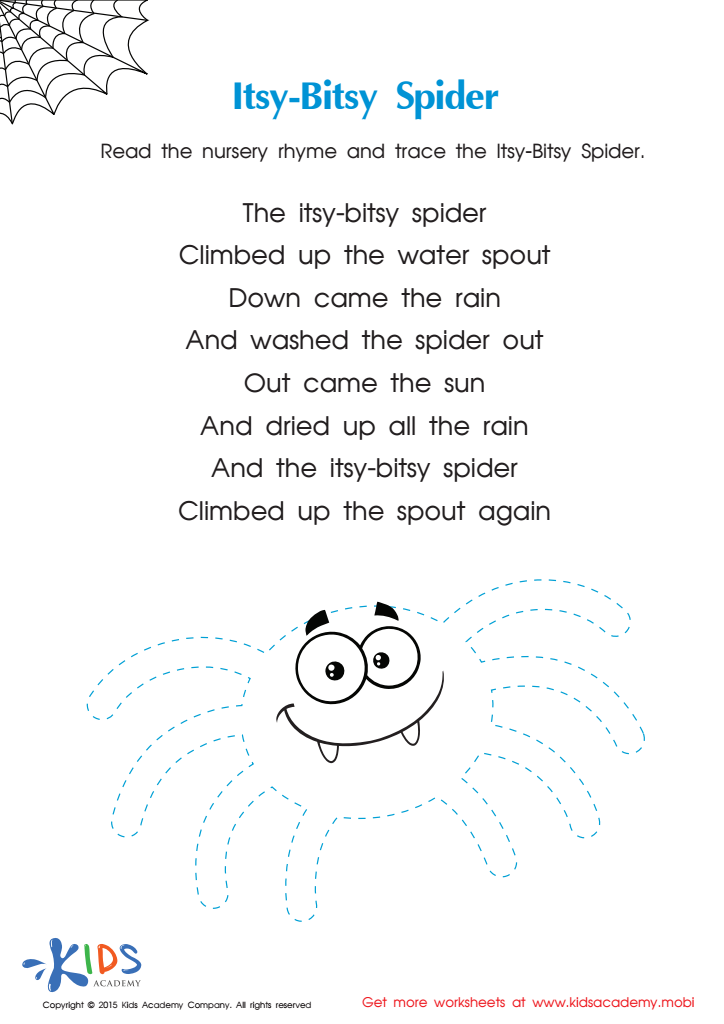

Itsy Bitsy Spider Nursery Rhyme PDF Worksheet


The Five Little Monkeys Nursery Rhyme Worksheet
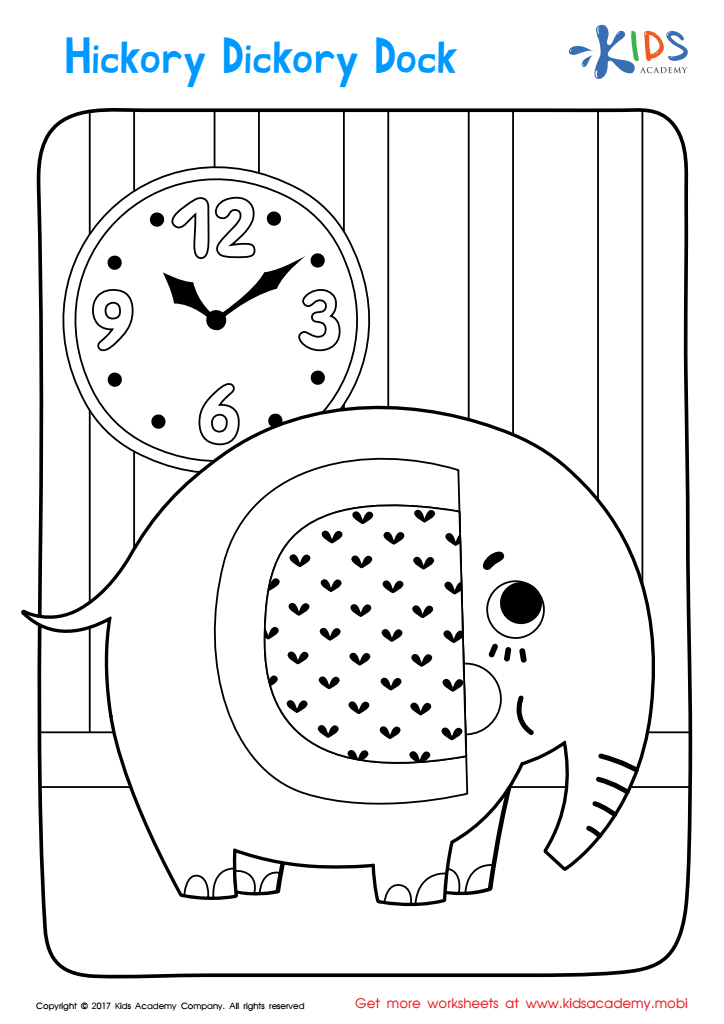

Hickory Dickory Dock Coloring Page
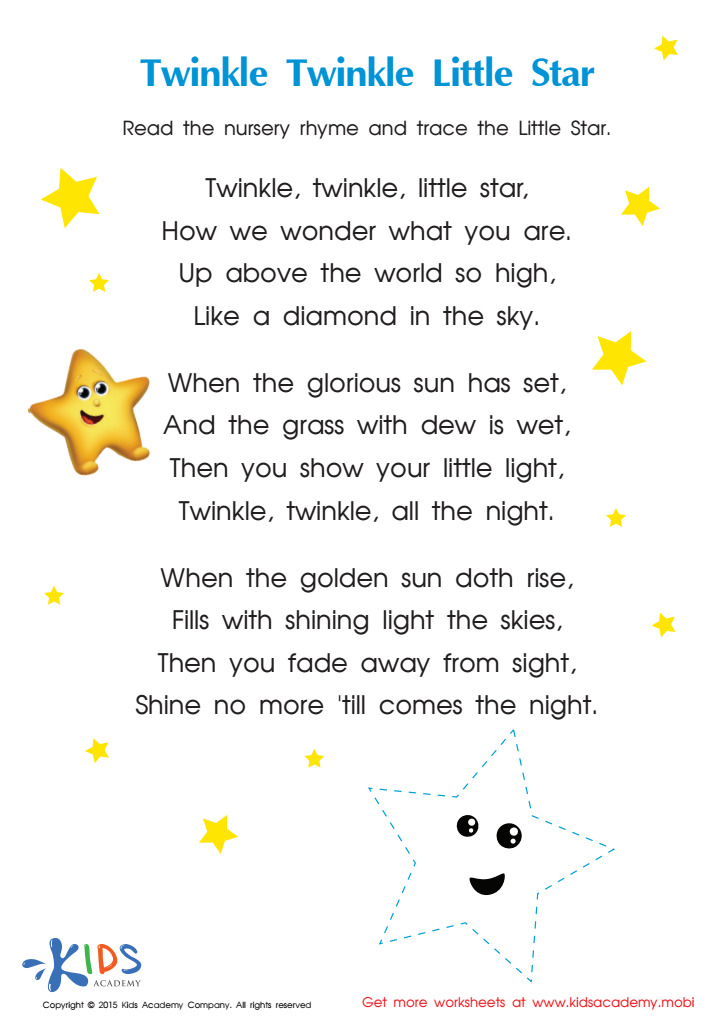

Nursery Rhymes: Twinkle Little Star Worksheet
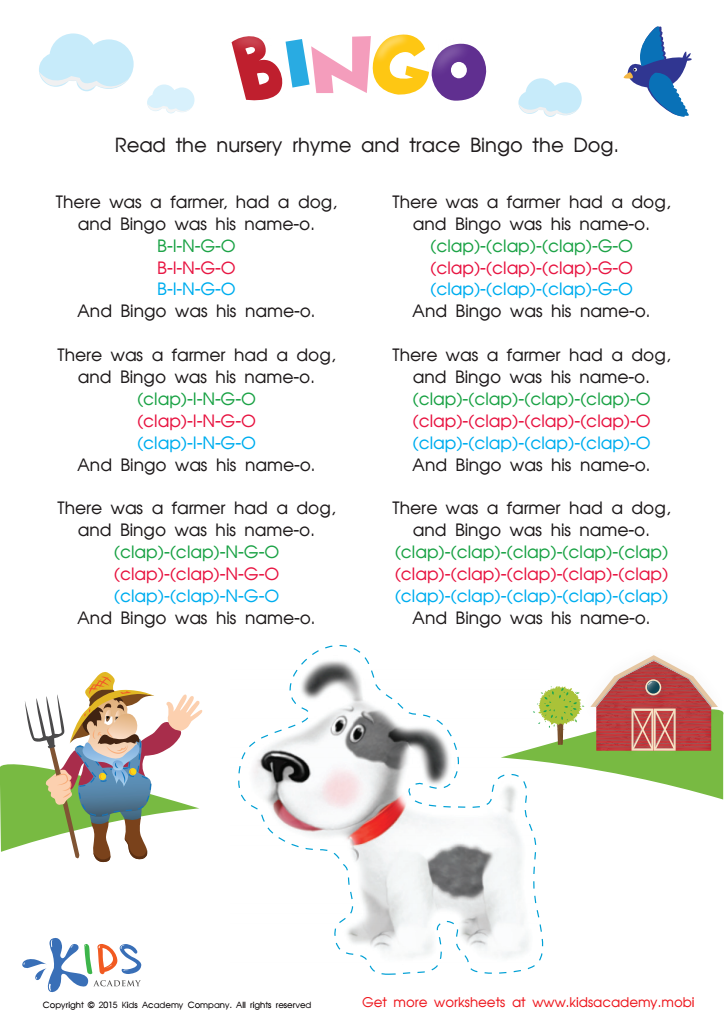

Nursery Rhymes: The Bingo Song Worksheet
Parents and teachers should care about Easy Nursery Rhymes for ages 6-9 because these rhymes serve as valuable educational tools fostering language development and cognitive skills. They promote phonemic awareness and listening skills, making it easier for children to decode words and improve their reading abilities. The rhythmic and repetitive nature of nursery rhymes helps children grasp the sounds and structure of language, introducing them to new vocabulary in an engaging way.
Additionally, these rhymes cultivate a love for literature and storytelling. As children recite and remember them, they develop memory skills and creativity, enhancing their imaginative thinking. Nursery rhymes often convey moral lessons and cultural values, helping children learn important social skills and norms in a gentle manner.
Furthermore, these rhymes can be incorporated into interactive activities, fostering teacher-student and parent-child bonding through shared learning experiences. Implementing nursery rhymes into daily routines can also promote a sense of routine and stability, which is essential for young children's emotional development. Thus, nursery rhymes are more than mere songs; they are foundational elements that support literacy, social-emotional growth, and creativity in children during a crucial stage of their development.

 Assign to My Students
Assign to My Students











